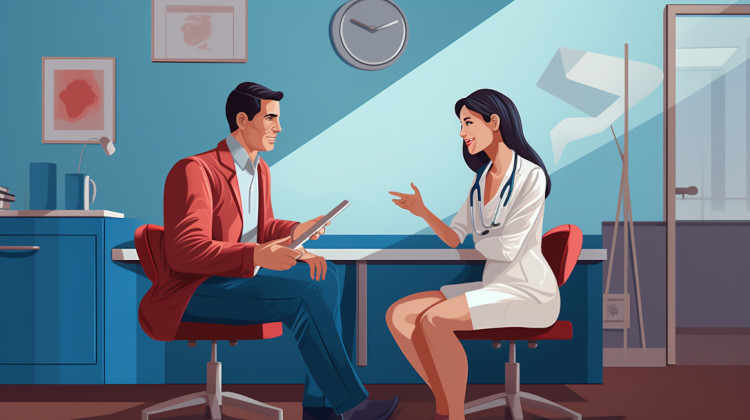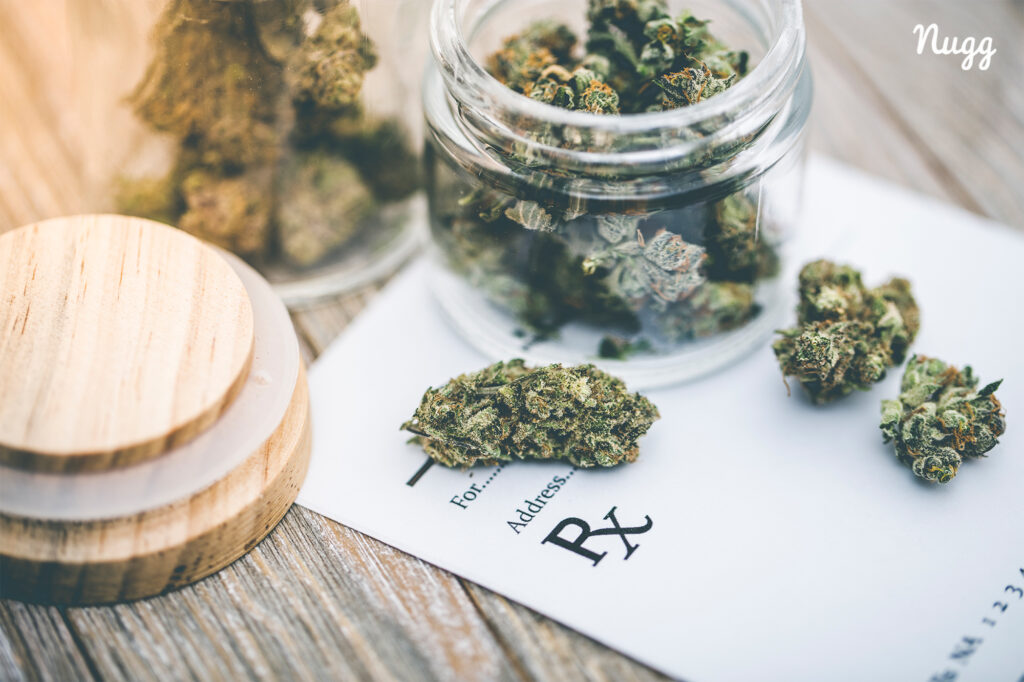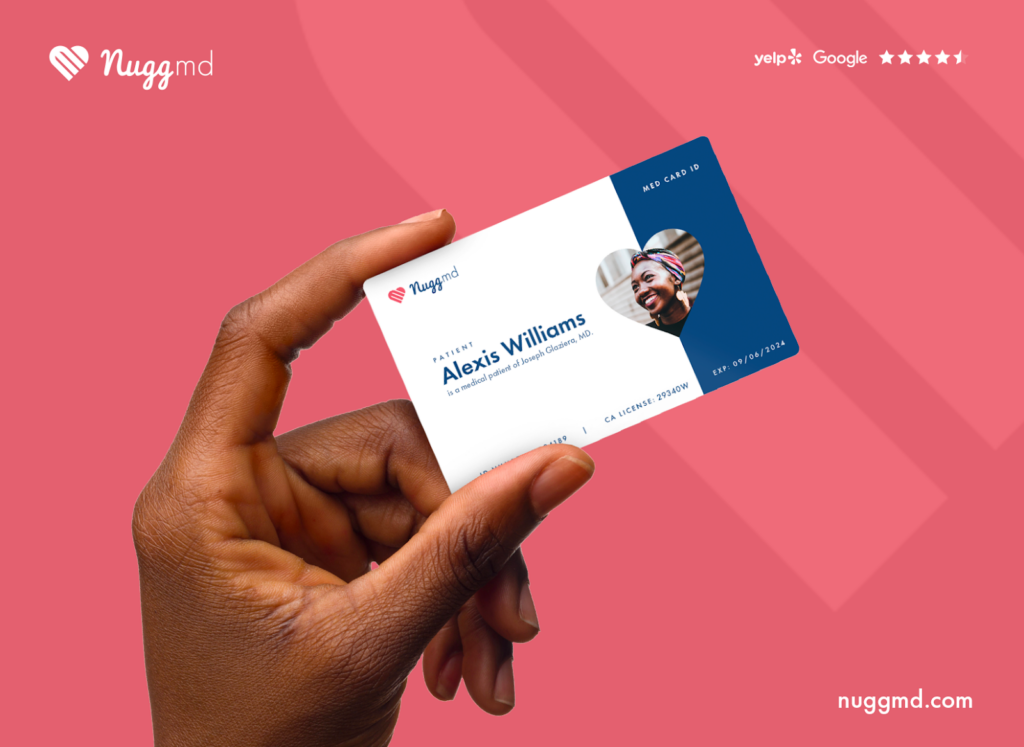
Rosacea is a chronic inflammatory skin disease that starts with easily triggered blushing or flushing in the center of the face. Over time, the redness may become permanent and spread to other portions of the face, neck, chest, and back. Despite some similarities, rosacea is not a form of acne and requires different treatments.
Red faces and bulbous noses, common symptoms of rosacea, have been described in novels and paintings throughout history. According to the National Rosacea Society, French surgeon Guy de Chauliac first described rosacea as a medical condition in the 14th century.
Although fair-skinned, middle-aged women most often develop rosacea, it can occur in anyone at any age. It is estimated that 16 million people in the United States have rosacea, and millions seek treatment every year.
Recently, there has been a major paradigm shift in how we view this skin condition. Rosacea is now viewed as a single disease with a variety of symptoms that can present in a myriad of combinations. In 2021, to better diagnose and treat rosacea, experts developed a new classification system reflecting this shift.1
What Causes Rosacea?
The cause of rosacea is unknown, but scientists theorize that it could be due to a combination of factors, including genetics, an overactive immune system, and environmental factors.
People are more at risk for developing rosacea if they:
- Are female
- Have fair skin that burns easily
- Are age 30-60
- Have a family history of rosacea or severe acne
- Smoke
- Have had severe acne
Sometimes, flare-ups of rosacea can be triggered by certain factors:
- Consuming spicy food and hot drinks
- Alcoholic beverages, especially red wine
- Exposure to sunlight, wind, or extreme temperatures
- Emotions
- Exercise
- Some blood pressure medications or other drugs that dilate blood vessels
- Some cosmetics, skincare, or hair-care products
Signs & Symptoms of Rosacea
Because there are so many signs and symptoms of rosacea, it has been classified into four subtypes, each with a certain set of symptoms.
- Erythematotelangiectatic rosacea (ETR)
- Papulopustular rosacea (acne rosacea)
- Phymatous rosacea
- Ocular rosacea
If you have ETR, you may experience one or more of the following symptoms:
- Blushing/flushing that is easily triggered
- Persistent redness and flushing in the center of your face
- Visible broken blood vessels
- Swollen and/or very sensitive skin
- Skin that burns and stings
- Dry, rough, or scaly skin
If you have papulopustular rosacea, you may experience one or more of the following symptoms:
- Red skin with acne-like breakouts
- Periodic acne-like breakouts
- Oily skin
- Very sensitive skin that may burn and sting
- Visible broken blood vessels
- Raised patches of skin, called plaques
If you have phymatous rosacea, a very rare type of rosacea that mostly occurs in men, you may experience one or more of the following symptoms:
- Bumpy skin texture
- Thickened skin, especially on the nose (called rhinophyma)
- Thickened skin on the chin, forehead, cheeks, and ears
- Visible broken blood vessels
- Pores that appear large
- Oily skin
If you have ocular rosacea, you may experience one or more of the following symptoms:
- Eyes that appear watery or bloodshot
- Gritty, sand-like feeling
- Eyes that burn or sting
- Dry, itchy, or sensitive eyes
- Blurry vision
- Visible broken blood vessels on your eyelid
- A cyst on your eyelid
- Reduced vision
People with rosacea often report an impacted quality of life that can lead to stress, anxiety, depression, and other problems. Because there is no cure for rosacea, treatment focuses on controlling its symptoms.
Can Cannabis Help Alleviate Symptoms of Rosacea?

With chronic conditions like rosacea, people often search for alternate methods of relief to improve their quality of life. Research has found that there are a number of cannabinoid receptors located in the different skin cell types and that the endocannabinoid system plays a significant role in mediating various skin disorders.2 Unfortunately, research is scarce into cannabis and rosacea; a 2021 article reported that cannabinoids do interact with receptors that are triggered in rosacea. More specifically, CBD, THC, and CBC can interact with various TRPV channels present in the skin.3
More recently, a review from 2023 detailed the potential of cannabinoids like THC and CBD as being beneficial for numerous other inflammatory skin conditions such as eczema, psoriasis, acne, and pruritus.4 Other studies have noted the potential benefit of cannabinoids like CBGA, CBC, and CBG, which may also play an important role in mediating inflammation in skin disorders. It is also important to note that the PPA receptors (PPAR) are also involved in skin inflammation, and cannabinoids like CBDA, CBD, and THC interact with the PPAR, potentially helping to mediate inflammatory triggers.5
Another review of studies from 2023 about the effects of phytocannabinoids on psoriasis notes the efficacy of cannabinoids like CBD and CBG against MRSA, atopic dermatitis, and the ability of THC and CBD to speed up wound healing.6
While the above research is promising, until further clinical study is conducted, we can’t say for certain whether cannabis will have an absolute positive effect on individuals with rosacea. However, it may be possible to theorize that because CBD, THC, CBG, and other minor cannabinoids have been demonstrated to reduce inflammation, they could likely positively affect the symptoms of rosacea.
The potential benefits of cannabis for skin health may not be solely due to its cannabinoids. Certain cannabis formulations for the skin that include other compounds like hemp seed oil and vitamin E oil may also positively benefit the skin and help reduce inflammation and dryness when used topically. In addition, when cannabinoids are consumed orally, there may be further benefits to the immune system, which is also involved in skin health.
Before using cannabinoids, like CBD, for rosacea, make sure to consult with your healthcare provider. Even though it is mostly well-tolerated in cases of skin health, skin irritation is still possible. If you choose to inhale or ingest THC-rich cannabis, be prepared as it will cause psychotropic effects, which may not be desirable for someone seeking to care for a skin condition.7
Products sold outside licensed dispensaries are often incorrectly labeled, so it is important to obtain high-THC and CBD products from licensed and reputable sources. Cannabinoids also have the potential to interact with certain medications to make them less effective or more potent.
If you do plan to use cannabis for rosacea, look for products that contain CBD, CBG, CBD+THC, or a combination. Sublingual oils, topicals, and CBD-rich dried cannabis flowers are among the products other patients recommend for use. Hemp seed oil, which doesn’t contain any cannabinoids, is another product that can be used orally or topically. If you choose to use a cannabis topical for rosacea, make sure that it is made with a carrier oil that is acceptable for the skin, like MCT oil, which is non-comedogenic.
Legality and Doctor’s Recommendation
To determine if your state considers rosacea to be a qualifying condition for medical cannabis, check out our Laws & Regulations section for the medical cannabis rules for your state.
If you find that your state recognizes rosacea or its symptoms as a qualifying medical condition, you can seek a doctor’s recommendation to get your medical cannabis card in your state.
How NuggMD Can Help

NuggMD is the nation's leading medical marijuana technology platform, serving patients in over half the United States. We’ve connected over 2,000,000 patients with their new medical marijuana doctors face-to-face via our state-of-the-art telemedicine platform.
We believe that every human being has the right to explore the benefits of medical cannabis and are fully committed to helping each patient explore all of their options in their journey to wellness. For further information on whether you qualify for medical cannabis, select your state.
Resources
- Gallo RL, Baldwin H, Gold LS, Harper J. Update on Facial Erythema in Rosacea. J Drugs Dermatol. 2021;20(8):861-864. doi:10.36849/JDD.6062
- Tóth KF, Ádám D, Bíró T, Oláh A. Cannabinoid Signaling in the Skin: Therapeutic Potential of the "C(ut)annabinoid" System. Molecules. 2019;24(5):918. Published 2019 Mar 6. doi:10.3390/molecules24050918
- Garbutcheon SKB, Smith SD. Cannabinoids interaction with transient receptor potential family and implications in the treatment of rosacea. Dermatologic Therapy. 2021;34(6):1-5. doi:10.1111/dth.15162
- Yoo EH, Lee JH. Cannabinoids and Their Receptors in Skin Diseases. International Journal of Molecular Sciences. 2023; 24(22):16523. https://doi.org/10.3390/ijms242216523
- Ramer R, Hinz B. Cannabinoid Compounds as a Pharmacotherapeutic Option for the Treatment of Non-Cancer Skin Diseases. Cells. 2022; 11(24):4102. https://doi.org/10.3390/cells11244102
- Wroński A, Jarocka-Karpowicz I, Stasiewicz A, Skrzydlewska E. Phytocannabinoids in the Pharmacotherapy of Psoriasis. Molecules. 2023; 28(3):1192. https://doi.org/10.3390/molecules28031192
- Sharpe L, Sinclair J, Kramer A, de Manincor M, Sarris J. Cannabis, a cause for anxiety? A critical appraisal of the anxiogenic and anxiolytic properties. J Transl Med. 2020;18(1):374. Published 2020 Oct 2. doi:10.1186/s12967-020-02518-2
- Dréno B, Bettoli V, Araviiskaia E, Sanchez Viera M, Bouloc A. The influence of exposome on acne. J Eur Acad Dermatol Venereol. 2018;32(5):812-819. doi:10.1111/jdv.14820
The information in this article and any included images or charts are for educational purposes only. This information is neither a substitute for, nor does it replace, professional legal advice or medical advice, diagnosis, or treatment. If you have any concerns or questions about laws, regulations, or your health, you should always consult with an attorney, physician or other licensed professional.

